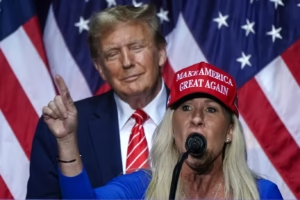In a landmark decision, a federal court has blocked the implementation of a controversial voting law, triggering national debate on voter suppression and election fairness. This legal ruling not only shifts the direction of upcoming elections but also redefines how American citizens engage with the democratic process.
Key Facts About the Blocked Voting Law
| Component | Details |
|---|---|
| Blocked By | Federal District Court (April 2025) |
| Main Issue | Law imposed stricter ID requirements and limited early voting |
| Impact Groups | Minority voters, elderly, low-income communities |
| Reason for Block | Violates Voting Rights Act; deemed discriminatory and restrictive |
| Nationwide Effect | Sets legal precedent for similar laws in other U.S. states |
What Was in the Controversial Voting Law?
The now-blocked law sought to:
- Cut early voting from 14 days to just 7 days
- Require government-issued photo ID for all ballots
- Restrict ballot drop boxes to one per county
Supporters claimed it would enhance election security.
Critics, however, argued it disproportionately burdened vulnerable communities, especially elderly and minority voters.
Why Did the Federal Court Block It?
The court ruled that the law violates Section 2 of the Voting Rights Act, which prohibits voting procedures that discriminate based on race or minority status.
Judge Cynthia Ramos stated in her opinion:
“While election integrity is essential, it cannot be achieved by suppressing lawful voters.”
This legal interpretation sets a powerful precedent that could influence voting rights lawsuits across other U.S. states.
How This Impacts American Voters
Reactions from Across the Country
- ACLU and Voting Rights Groups: Celebrated the ruling as a safeguard against voter suppression.
- Republican State Leaders: Condemned the block, arguing it limits states’ rights to control elections.
- Voters: Many citizens expressed relief, especially in communities that feared suppression ahead of the 2024 election.
According to the Brennan Center for Justice, such voting restrictions disproportionately harm voters of color and low-income communities. Their research strongly supports the court’s decision.
Read the Brennan Center’s legal analysis.
Final Thoughts and Data
Recent data from the U.S. Election Assistance Commission shows:
- Over 15 million Americans used early voting in 2020
- More than 11% of voters lack a government-issued ID
- Voting turnout increased by 7% in states that expanded access
This ruling directly affects millions of voters and could shape turnout and election fairness nationwide.
✅ Conclusion
The federal court’s decision to block this controversial voting law is more than just a legal event—it’s a defining moment in America’s ongoing battle over voter rights and electoral access. As legislative battles continue, this ruling reinforces the need for vigilance, fairness, and protection of democratic participation for every American voter.





